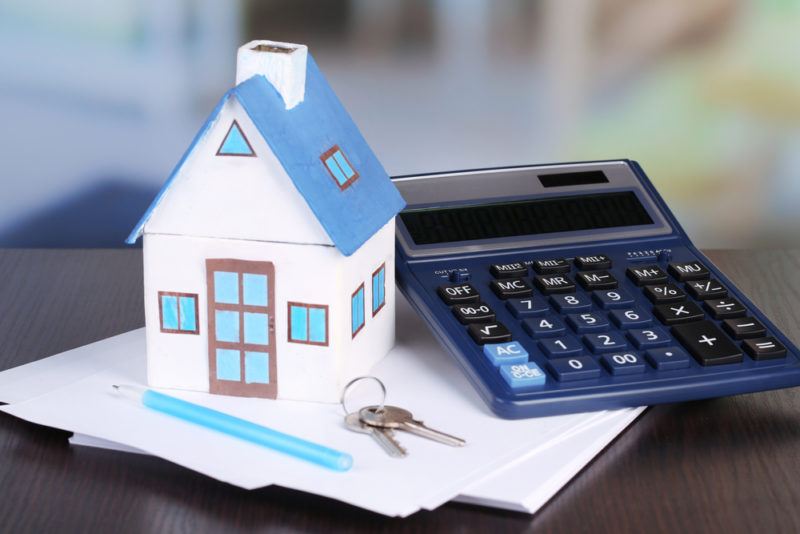
There are many reasons why you may want to understand the value of your house or condo today. With the Toronto real estate market blazing throughout the summer, you may be thinking about getting ready to sell. You may also be looking to refinance for investment purposes, which is a very smart move to make.
You know how much you paid for the property, and you likely consider the work you’ve done on the house/condo to update and improve it. But while your home may be your castle, your personal feelings toward the property and even how much you paid for it a few years ago play no part in the value of your home today.
What Your House or Condo’s Worth is Based On
A house’s value is based on the amount the property would likely sell for if it went on the market at that certain given time.
Pinpointing a specific and lasting value for a property is an impossible task because the value is based on what a buyer would be willing to pay. Factors come into play beyond the neighborhood, number of bedrooms and whether the kitchen is updated. Other things that could influence value include the time of year you list the home and how many similar houses are on the market at the same time.
As a result, a reported value for your home or property is considered an estimate of what a buyer would be willing to pay at that point in time, and that figure changes as months go by, more homes sell and the property ages.
Property valuation primarily looks at recent sales of comparable properties in the area, and key identifying factors are the same square footage, number of bedrooms and bathrooms, among other details. The professionals who determine property values for a living compare all the details that make your house similar and different from those recent sales, and then calculate the value from there.
But when your property is unique – maybe it’s a odd-shaped lot or a four-bedroom home in a neighborhood full of condos – determining the value can be more challenging.

Types of Appraisals
Lender Appraisial
In the case of a property sale, the appraisal most often happens once the property has gone under contract. The lender your buyer has chosen will hire an appraiser to complete a report on the property, getting all the details on the house and its history, as well as the details of similar real estate deals that have closed in the last six months or so.
If the appraiser comes back with a valuation below that $700,000.00 sale price you’ve already agreed upon, the lender will likely state that he or she is willing to lend an amount equal to the property’s value as determined by the appraisal, but not more. If the appraisal comes in at $680,000.00, the buyer has the option to come up with the $20,000 difference or try to negotiate the price down.
Many sellers are open to negotiation at this point, knowing that a low appraisal likely means the house won’t sell for a higher price once it’s back on the market.
Independent Appraisal
If you haven’t yet reached the point of putting your house on the market and are struggling to determine what your asking price should be, hiring an appraiser ahead of time can help you get a realistic estimate.
Especially if you’re struggling to agree with your real estate agent on what the most likely sale price will be, bringing in a third party could provide additional context. But in this scenario, be prepared for the agent to be right.
How Do Market Values Apply to My Home?
There are obviously multiple ways to find out the current value of your own house or condo, but individual appraisals and assessments aren’t not the only time you’ll hear about home values. In annual, quarterly or even monthly reports, home values are often discussed along with the rising cost of homeownership on a local, provincial and even national level.
Depending on the source of information, reported values may be based on the online estimator tools, listing prices for houses currently on the market or property value information from local assessors’ offices. These numbers are useful to discuss overarching trends on a large scale, but they don’t always reflect the actual sale prices of real estate deals that closed in those time periods.
The details you get about rising values can be useful as you prepare to put your home on the market, buy your first house or learn more about economic forecasts, but don’t take national trends as indicators of what’s happening in your area.
The importance behind trends in home values mean different things depending on the stage of homeownership you’re in or moving toward.

For buyers
As you’re preparing to start the house-hunting process, keeping up on real estate market trends can be an excellent way to know what you’ll be facing. If values are climbing every month and year-over-year comparisons show high growth – for example, 5 percent or more – those are signs that a lot of buyers are looking for houses at the same time as you.
For Homeowners and Sellers
For homeowners looking to prepare their home for sale or even just know a bit more about their net worth, keep in mind that wider home value trends and reports have little impact on you. Think about local reports and pay attention to what’s happening on your street or in your condo building.
If you’re looking to understand how much your condo or house is worth in the market today or are thinking about selling in the upcoming fall market, now is a good time to contact your realtor to help set you up for success, and get you the most money possible for your house or condo.

TRB Education Hub
Get the real estate resources you need to succeed. Visit our education hub for market insights, guides, podcasts and more.




